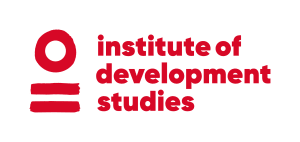
https://www.ids.ac.uk/news/ids-and-wwf-call-for-urgent-need-for-trade-po...
The Ukrainian crisis has exposed the vulnerabilities of the global food system, raising the urgency to support a more resilient system that works for people and nature. The UK government must support this transition to a better food system by developing Core Environmental Standards and providing assistance to Global South farmers.
In order to stabilise farmers’ incomes whilst simultaneously protecting nature, the UK Government must establish a set of Core Environmental Standards (CES) in law, says a new policy paper by WWF-UK and the Institute of Development Studies (IDS). The new paper, Trade Policy for Sustainable and Inclusive Agriculture, highlights that food production accounts for a significant share of exports in many developing countries, and agricultural global value chains facilitate the exchange of products, ideas, and talent across countries.
However, the vulnerability of the food system has been exposed recently, by climate and geopolitical crises, resulting in rising food prices and food insecurity for millions. By introducing core environmental standards, this would help drive the transition to better farming systems that have positive outcomes for nature, while also helping farmers to have more reliable incomes.
Angela Francis, Director of Policy Solutions at WWF-UK, said:
“Food shortages following the Ukrainian crisis have shown that our current food system is not fit for purpose; we need a more resilient and fair system that can tackle the climate and nature crises and work for people.
“We know that we can farm in a way that benefits both people and nature but to get there, we need to align our trade policy with our environmental goals.
“The UK can do this by developing core environmental standards for all food imports, and supporting developing country farmers to meet those standards through financial and technical support for the modern agroecological practices that will generate more resilient income and lower inputs costs.”
Amrita Saha, Research Fellow and lead on Trade and development at IDS, said:
“Sustainability standards and regulations for trade can have positive and negative spillovers for the poor, such that ‘inclusive trade’ may often conflict with ‘sustainable trade’ – these trade-offs between inclusion and sustainability need to be carefully considered in trade
policy.
“Aligning trade policy with support for sustainable and inclusive food systems requires a focus on scaling finance to support Global South producer compliance to core environmental standards.”
Core environmental standards would set minimum environmental requirements for all imports, comparable to mandatory requirements that UK farmers need to meet. This would ensure that UK trade policy does not undermine the domestic agricultural reform agenda and does not offshore the UK’s environmental footprint.
Several countries have started to reform their agricultural support schemes and transition to agroecological practices for sustainable farming. The UK has shown leadership with the Sustainable Farming Incentive, one of three new Environmental Land Management Schemes (ELMS) designed to provide “public money for public goods”, which rewards farmers for greater adoption of environmental practices, such as reduced soil tillage and thicker hedgerows. Building on this leadership, which must include developing a compatible trade policy, is an important opportunity.
Read the policy brief ‘Trade Policy for Sustainable and Inclusive Agriculture’.
Interested in learning more about inclusive trade policy? Take a look at our specialist online short course ‘Making Trade Policy Inclusive’ .










Add new comment